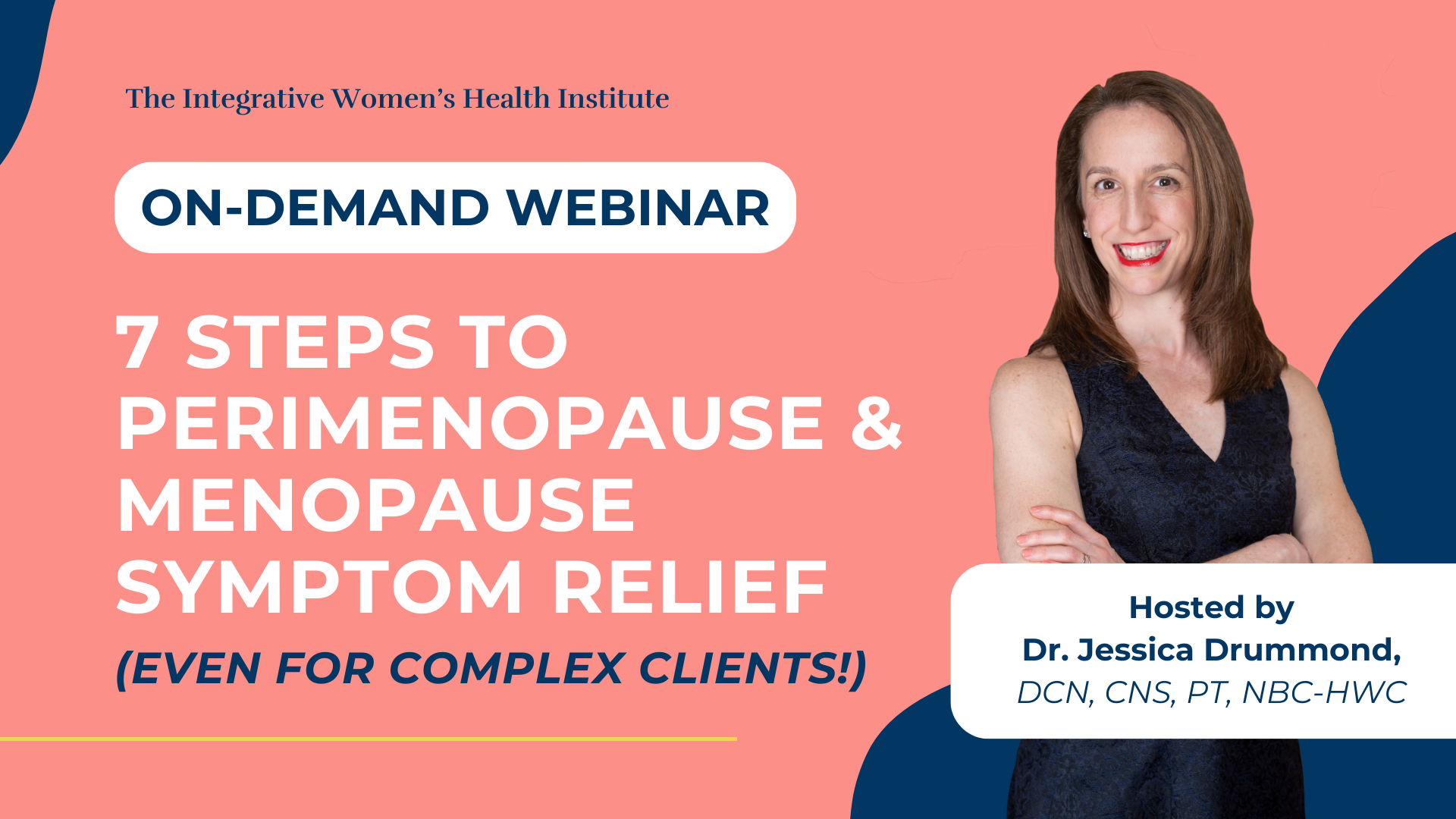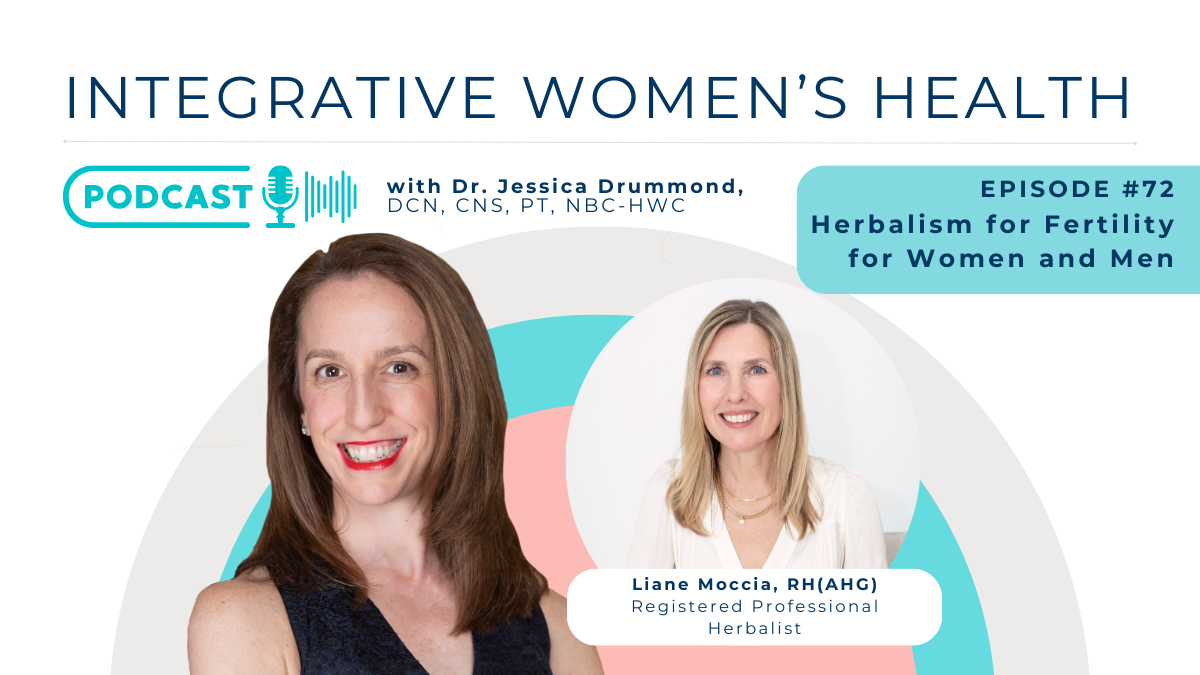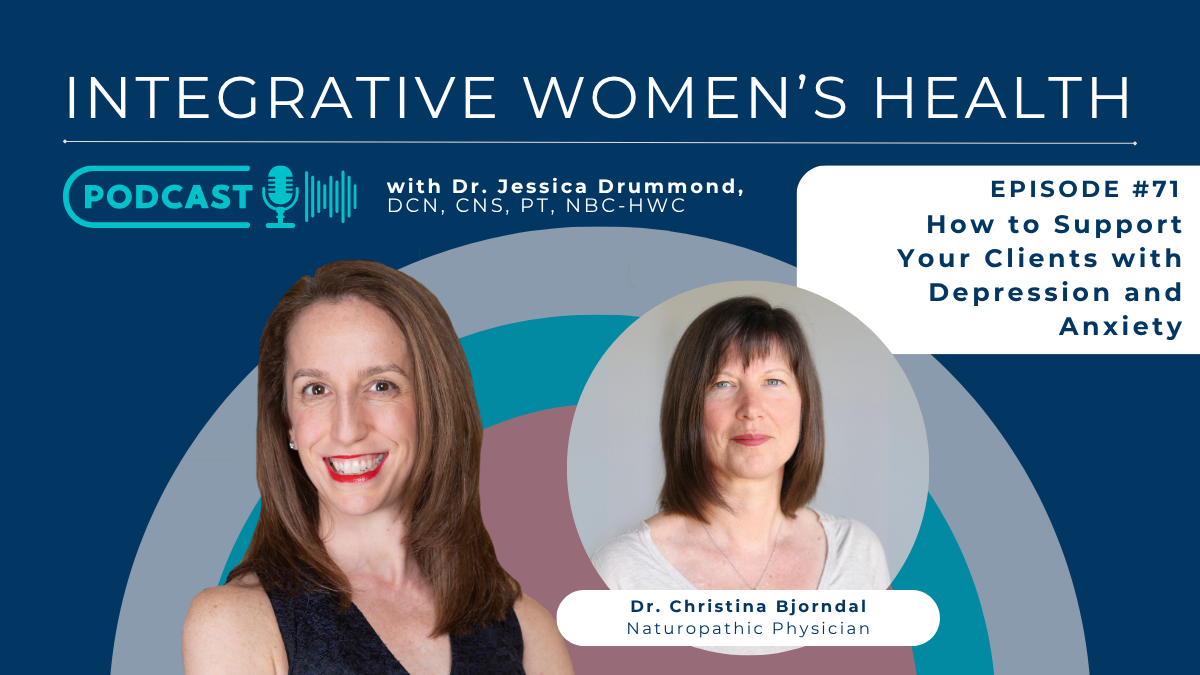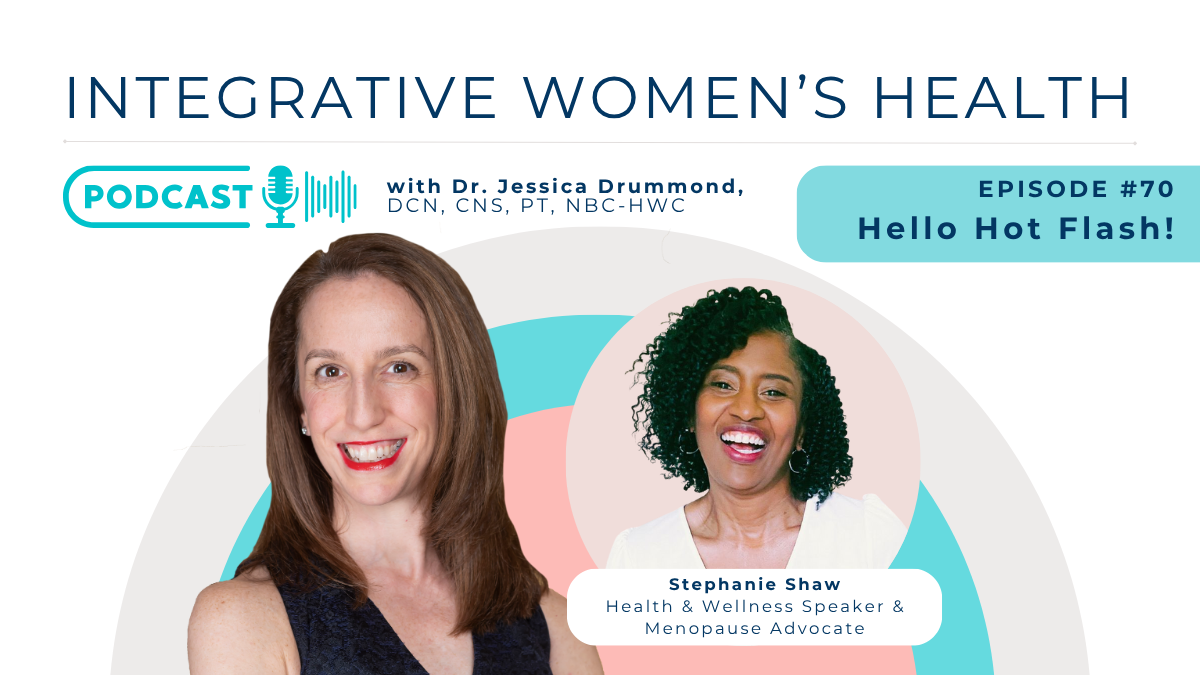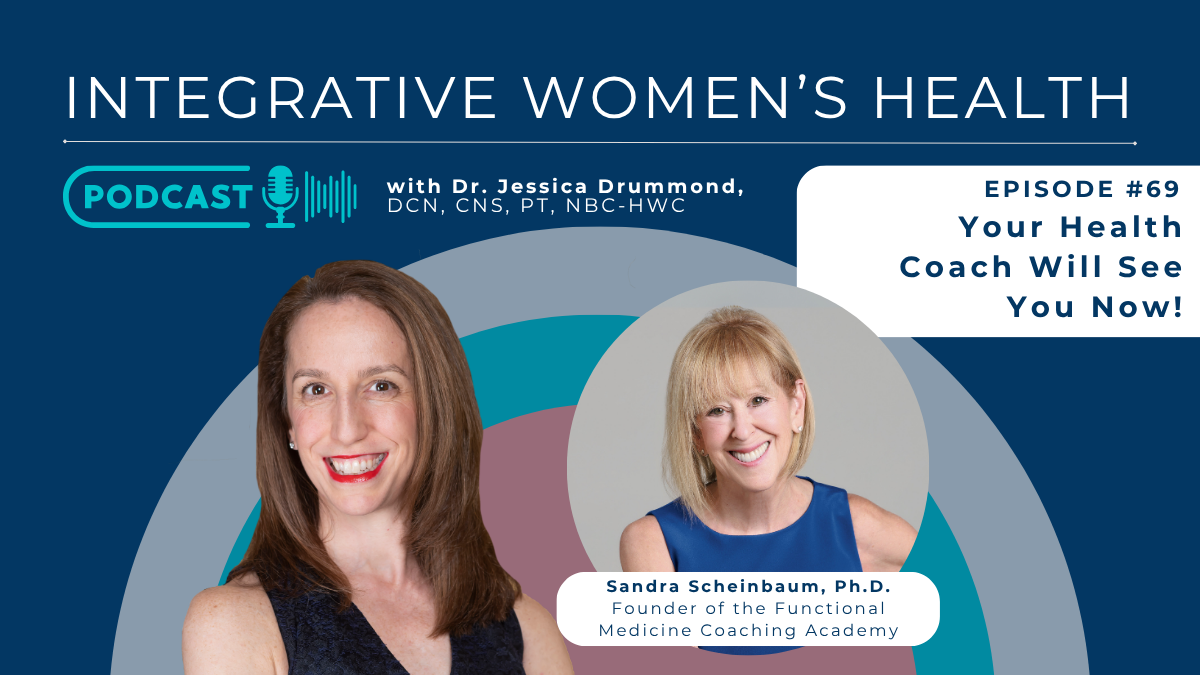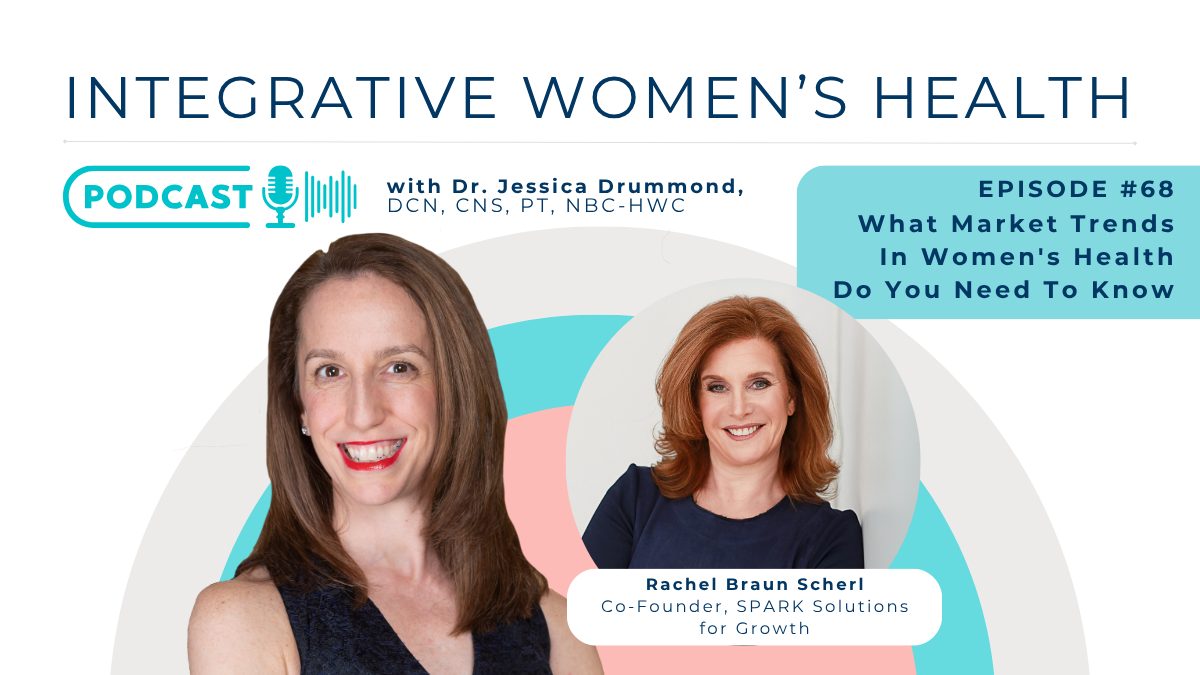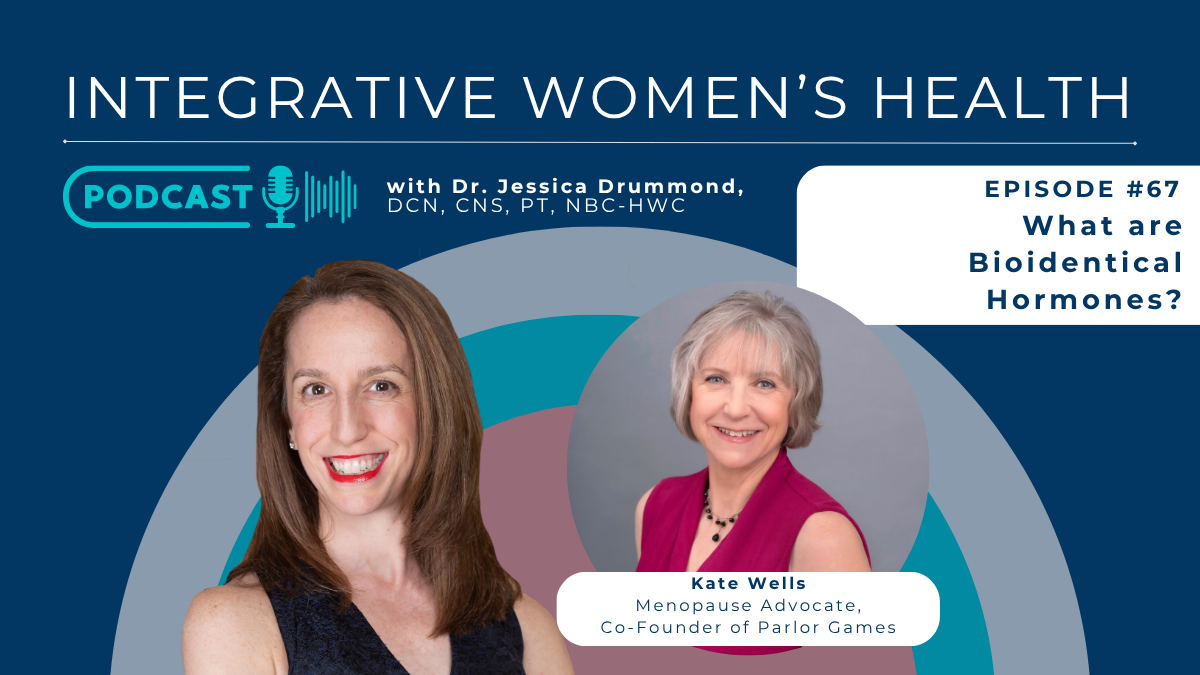Nearly 50% of midlife women ages 35-55 years have struggled with poor sleep and sleep issues. (1)
For the clients in my practice, there are many common complaints associated with poor sleep, including:
-
Difficulty falling asleep
-
Getting a second wind late at night
-
Difficulty staying asleep
-
Not feeling rested in the morning
-
Waking up many times each night to use the restroom,
-
Losing sleep due to: caring for children or pets, a snoring spouse, snoring themselves, sleep apnea, hot flashes, or night sweats
-
At least 20% of midlife women have at least moderate-severity sleep-disordered breathing (SDB) (2)
To support your clients to achieve natural hormone balance and good sleep, excellent coaching and lifestyle medicine skills are essential.
What is causing poor sleep in midlife women?
There is a high prevalence of comorbid insomnia and SDB in midlife women.
31% of people who met the criteria for insomnia also had at least moderate-severity SDB and 23% of those with SDB also met the criteria for insomnia. (2)
Restless legs syndrome (RLS) also increases in prevalence during midlife. (2) Women are affected by RLS about twice as often as men, in both mild and more severe cases of RLS. (3) RLS often appears for the first time during pregnancy or can become more severe during pregnancy.
With more pregnancies, the risk of RLS later in life increases.
There is some evidence of poor iron metabolism and high estrogen levels as causative factors for RLS. However, with menopause, RLS doesn’t tend to improve so the details of the hormonal and nutrient deficiency etiologies of RLS are not yet clear.
Hot flashes (otherwise known in the literature as vasomotor symptoms – VMS), are the primary predictor of sleep problems in menopausal women. (1) Women in this age group have lower sleep efficiency, and their sleep is characterized by multiple awakenings.
Their poor sleep quality increased their daytime irritability, for obvious reasons!
VMS not only directly and negatively influences sleep quality and duration, but also has an indirect effect on mood. (4) Of course! People who don’t sleep well are more often in bad moods during the day.
Are hormone shifts related to sleep?
For estrogen, that’s not really clear. The estrogen shift and decline in perimenopause and menopause can predispose women to depression and insomnia, which as noted above seem to be related. (1)
There does not seem to be a clear association that can be improved with hormone replacement or some other simple therapy. (1)
Progesterone seems to have a more direct effect on sleep.
Studies also show that decreases in progesterone levels can cause disturbed sleep.(5) Progesterone has relaxing, sleep-inducing, and calming effects, stimulating benzodiazepine receptors, which play an important role in a healthy sleep cycle. (1)
What else can cause sleep disturbance in women throughout their lifespan?
Medical conditions that are known to disturb sleep include obesity, heart problems, gastrointestinal problems, urinary problems, endocrine problems, and chronic pain.
Prescribed medications and self-medicating with substances to address chronic health concerns can also contribute to poor sleep.
Medications and substances that can disturb sleep include neuroactive medications, cigarettes, alcohol, caffeine, selective serotonin reuptake inhibitors, bronchodilators, antiepileptic medications, thyroid hormone replacement, and others. (1)
For people with chronic pain, poor sleep is a common struggle. (1) Poor sleep quality with longer duration sleep is common among people who report high pain scores.
Rheumatoid arthritis is also associated with poor sleep quality. Women with elevated inflammatory biomarkers, such as elevated C-reactive protein also report poor sleep quality and depression.
Join Dr. Jessica Drummond, the founder and CEO of the Integrative Women’s Health Institute, for an exclusive webinar designed for health and wellness professionals who aspire to excel in menopausal symptom management.
Dive deep into her proprietary and comprehensive, seven-step approach to managing perimenopause and menopause symptoms, especially for complex cases.
Menopause and Sleep Apnea
The prevalence of obstructive sleep apnea (OSA) rises significantly after menopause up to nearly 70% of post-menopausal women. (1)
The upper airway changes anatomically after menopause and results in a compromise in breathing during sleep.
Weight gain after menopause often contributes to this anatomical change. Increased body weight does not appear to be the only factor responsible for this condition.
One study found that despite comparable BMI postmenopausal women had more severe OSA. They also found they spent a larger amount of sleep time with OSA as compared to premenopausal females. (6)
The decline in progesterone levels also contributes to increased sleep apnea risk. (1)
Due to a lack of progesterone, the pharyngeal dilator muscle activity is affected. However, Carskadon et al. showed that hormonal factors play a minor role as compared to anthropometric measures in the development of OSA after menopause (7)
Progesterone is a direct respiratory stimulant and has been used to treat mild OSA. (8)
Interestingly, during pregnancy, there are few cases of OSA, given the amount of weight gain that typically occurs. (9) The high progesterone levels characteristic of pregnancy function as a respiratory stimulant.
What nutrition and lifestyle medicine strategies can address poor sleep in women?
Optimize hormone balance.
Start by improving the resilience of the endocrine system’s stress response. Some of the most common issues my clients face are dysregulated cortisol, glucose, and insulin levels.
This dysregulation is often exacerbated by stressors such as work, family, parenting, relationship stress, sugar, caffeine, alcohol, and a lack of a strong support network.
All of these issues can be addressed by skilled health coaching, preferably with a certified Women’s Health Coach.
Supplements that are supportive of the stress response system, such as adaptogens, can also be effective to help restore stress hormone balance.
When working with clients, I recommend starting with calming preparations such as CatecholaCalm. This supplement includes cortisol-lowering adaptogens, herbs, and amino acids.
Including ashwagandha, valerian root, B-vitamins, phosphatidylserine, magnesium, and l-theanine.
If a client’s cortisol is too low, I recommend licorice tea or adrenal support supplements with licorice. I also sometimes recommend balancing adaptogens, such as Adrenotone.
For many people, it’s helpful to start with calming and nourishing adaptogens in low doses, such as in teas, or with stress-reducing lifestyle strategies.
Then, if needed, move on to using more stimulating supplements. Certain supplements can be too stimulating when the stress response system is tired AND “wired.”
Adding more stimulation even if cortisol is low, can make women feel even worse, anxious, less rested, and jittery.
It is crucial to help your client determine the best personalized combination of nutrition, supplementation, and lifestyle medicine to support their stress and endocrine system’s resilience.
Naturally, increase progesterone.
Prior to menopause it could be beneficial to supplement with Agnus castus L (also known as chaste tree or vitex), as it may help to block estrogen receptors by binding to them and exerting anti-estrogen activity.
A. castus demonstrates a significant competitive binding to estrogen receptors alpha (ER alpha) and beta (ER beta) as well as stimulating progesterone receptor expression (10).
Supplementing vitamin B6 at doses of 200-800 mg/day, and magnesium to bowel tolerance can also support healthy progesterone levels. (11).
Reduce blue light screen exposure after sundown
During the darkness of night, melatonin concentrations rise to promote sleep onset and regulate the circadian sleep phase. (12) Exposure to light at night strongly suppresses melatonin, which interferes with sleep timing and sleep quality.
Individuals who used an eReader (30–50 lux) during the 4 hours before bedtime experienced increased latency to fall asleep and decreased morning alertness. (13) The symptoms coincided with significant suppression of melatonin.
Wear amber glasses.
Twenty adult subjects were randomized to wear either blue-blocking (amber) or yellow-tinted (blocking ultraviolet only) safety glasses for 3 hours prior to sleep. (14)
Results revealed significant (p < .001) interaction between the quality of sleep over the three weeks and the experimental condition.
At the end of the study, the amber lens group experienced significant (p < .001) improvement in sleep quality relative to the control group (p = .005). Mood also improved significantly relative to controls.
Exercise during the day, ideally outside in daylight.
Aerobic exercise such as walking outside for 30 minutes has been shown to significantly increase blood melatonin concentration and promote an earlier bedtime.
Along with improved ease of falling asleep and improved sleep quality.
Sleep is essential lifestyle medicine for women of all ages. Supporting optimal sleep health is key to optimal hormonal health and general health for women.
While strategies for improving sleep are relatively simple, implementing these strategies in the context of a busy lifestyle can be challenging.
In order to successfully improve sleep quality and duration, it requires planning, accountability strategies, and commitment from the client, their health coach, and their support network.
To support your clients to achieve natural hormone balance and good sleep, excellent coaching and lifestyle medicine skills are essential.
Click here to learn more about The Perimenopause and Menopause Certificate Program.

References:
- Jehan, S., Masters-Isarilov, A., Salifu, I., Zizi, F., Jean-Louis, G., Pandi-Perumal, S. R., … McFarlane, S. I. (2015). Sleep Disorders in Postmenopausal Women. Journal of Sleep Disorders & Therapy, 4(5), 1000212. http://doi.org/10.4172/2167-0277.1000212
- Kline, C. E., Irish, L. A., Buysse, D. J., Kravitz, H. M., Okun, M. L., Owens, J. F., & Hall, M. H. (2014). Sleep Hygiene Behaviors Among Midlife Women with Insomnia or Sleep-Disordered Breathing: The SWAN Sleep Study. Journal of Women’s Health, 23(11), 894–903. http://doi.org/10.1089/jwh.2014.4730
- Manconi M, Ulfberg J, Berger K, Ghorayeb I, Wesström J, Fulda S, Allen RP, Pollmächer T. (2012) When gender matters: restless legs syndrome. Report of the “RLS and woman” workshop endorsed by the European RLS Study Group. Sleep Med Rev, 16(4), 297-307. doi: 10.1016/j.smrv.2011.08.006
- Vincent AJ, Ranasinha S, Sayakhot P, Mansfield D, Teede HJ. Sleep difficulty mediates effects of vasomotor symptoms on mood in younger breast cancer survivors. Climacteric. 2014;17:598–604.
- Guidozzi F, Alperstein A, Bagratee JS, Dalmeyer P, Davey M, et al. South African Menopause Society revised consensus position statement on menopausal hormone therapy, 2014. S Afr Med J. 2014;104:537–543.
- Anttalainen U, Saaresranta T, Aittokallio J, Kalleinen N, Vahlberg T, et al. Impact of menopause on the manifestation and severity of sleep-disordered breathing. Acta Obstet Gynecol Scand. 2006;85:1381–1388.
- Carskadon MA, Bearpark HM, Sharkey KM, Millman RP, Rosenberg C, et al. Effects of menopause and nasal occlusion on breathing during sleep. Am J Respir Crit Care Med. 1997;155:205–210.
- Empson JAC, Purdie DW. Effects of sex steroids on sleep. Ann Intern Med 1999;31:141-5, http://jcsm.aasm.org/articles/010312.pdf
- Liu J, Burdette JE, Xu H, Gu C, van Breeman RB, Bhat KP, et al. Evaluation of estrogenic activity of plant extracts for the potential treatment of menopausal symptoms. J Agric Food Chem. 2001;49:2472–9.
- Abraham GE. (1983) Nutritional factors in the etiology of the premenstrual tension syndromes. J Reprod Med, 28(7), 446-64.
- Bedrosian, T. A., & Nelson, R. J. (2017). Timing of light exposure affects mood and brain circuits. Translational Psychiatry, 7(1), e1017–. http://doi.org/10.1038/tp.2016.262
- Chang AM, Aeschbach D, Duffy JF, Czeisler CA. Evening use of light-emitting eReaders negatively affects sleep, circadian timing, and next-morning alertness. Proc Natl Acad Sci USA 2015; 112: 1232–1237.
- Burkhart K, Phelps JR. (2009) Amber lenses to block blue light and improve sleep: a randomized trial. Chronobiol Int, 26(8), 1602-12. doi: 10.3109/07420520903523719
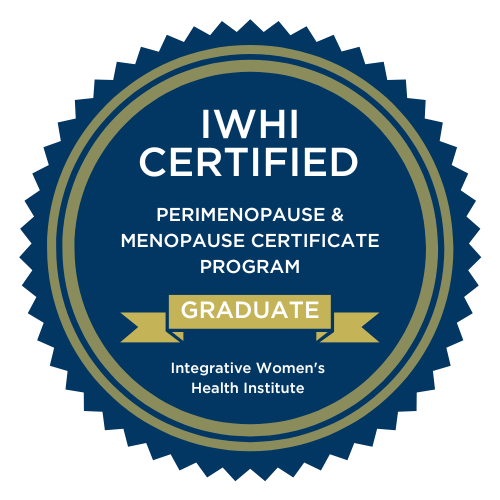
BECOME A MENOPAUSE EXPERT
IN 6 MONTHS OR LESS!
Fast-track to becoming a specialized perimenopause and menopause expert in under six months.
Receive an authenticated certificate to display on your website and in your office upon program completion.
Stand out in the marketplace as a practitioner who specializes in the management and treatment of perimenopause, menopause and associated symptoms and conditions.

Dr. Jessica Drummond
Founder & CEO
The Integrative Women’s Health Institute
At the Integrative Women’s Health Institute, we’ve dedicated 17 years to crafting evidence-driven, cutting-edge programs that empower practitioners like you to address the complexities of women’s health.
Dr. Jessica Drummond’s unique approach focuses on functional nutrition, lifestyle medicine, movement therapies, nervous system dysregulation, trauma, and mindset – essential elements often overlooked in traditional health education.
In addition, your training will be fully evidence based, personalized, and nuanced (this is not a cookie cutter approach) in functional nutrition, exercise, recovery, cellular health, and all other lifestyle medicine tools.
You’ll learn to support your clients with cutting edge tools safely and effectively.

